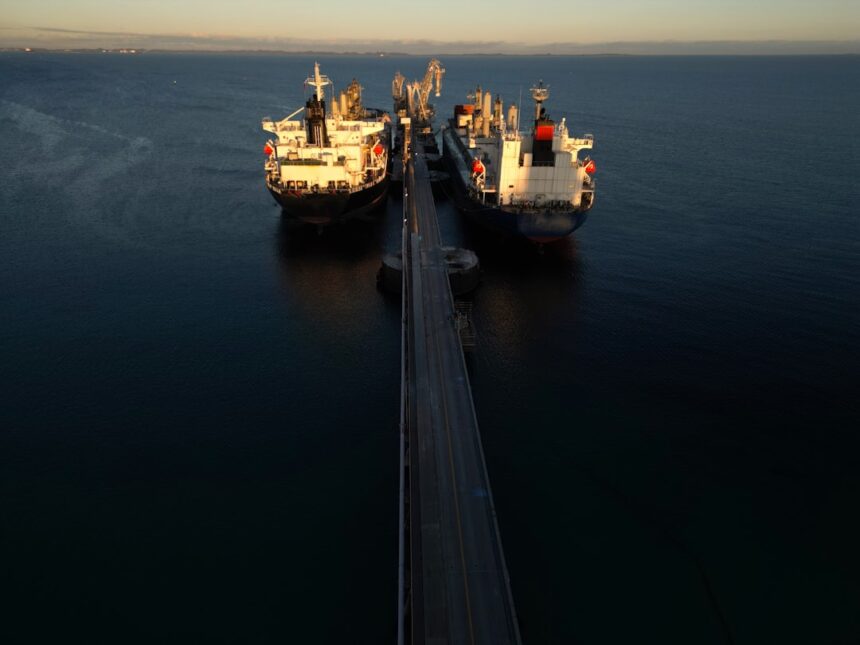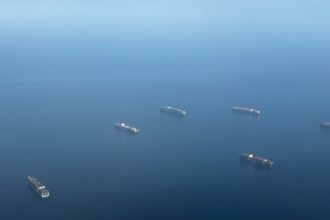Nord Stream is a significant natural gas pipeline system that runs under the Baltic Sea, connecting Russia directly to Germany. This ambitious project, which began operations in 2011, was designed to transport natural gas from the vast reserves of Siberia to the energy-hungry markets of Europe. The pipeline consists of two main lines, Nord Stream 1 and Nord Stream 2, with a combined capacity of approximately 110 billion cubic meters of gas per year.
The construction of Nord Stream was heralded as a technological marvel, showcasing advanced engineering and a commitment to energy cooperation between Russia and Europe. The inception of Nord Stream was driven by the growing demand for energy in Europe, coupled with the need for a reliable supply route that could bypass transit countries. This was particularly relevant in light of previous disputes between Russia and Ukraine, which had disrupted gas supplies to Europe.
By establishing a direct link between Russia and Germany, Nord Stream aimed to enhance energy security for European nations while simultaneously bolstering Russia’s position as a key energy supplier. However, the project has not been without controversy, as it has sparked debates over energy dependence, geopolitical tensions, and environmental concerns.
Key Takeaways
- Nord Stream is a natural gas pipeline that runs from Russia to Germany, providing a direct link between the two countries.
- The pipeline has significant geopolitical importance, as it allows Russia to bypass traditional transit countries and have direct access to European markets.
- Nord Stream has raised concerns about European energy security, as it increases dependence on Russian gas and reduces the diversity of energy sources.
- Environmental concerns surrounding Nord Stream include potential damage to marine ecosystems and the impact of construction on local communities.
- The economic implications of Nord Stream are complex, with potential benefits for European consumers but also concerns about monopolistic control and market manipulation by Russia.
The Geopolitical Importance of Nord Stream
The geopolitical significance of Nord Stream cannot be overstated. It serves as a critical conduit for Russian natural gas to reach European markets, thereby influencing the energy dynamics within the region. By providing a direct route for gas supplies, Nord Stream reduces Europe’s reliance on traditional transit countries like Ukraine and Poland, which have historically been points of contention in energy negotiations.
This shift in supply routes has implications for the balance of power in Eastern Europe, as it diminishes the leverage that these transit nations once held over Russia and its energy exports. Moreover, Nord Stream has become a focal point in the broader context of European energy policy and security. As Europe seeks to diversify its energy sources and reduce dependence on fossil fuels, the pipeline’s role in facilitating Russian gas imports raises questions about the continent’s long-term energy strategy.
The geopolitical landscape is further complicated by the involvement of various stakeholders, including the European Union, NATO, and individual member states, each with their own interests and concerns regarding energy security and political alignment with Russia.
Nord Stream’s Impact on European Energy Security

Nord Stream has had a profound impact on European energy security by providing a stable and reliable source of natural gas. The pipeline’s ability to deliver gas directly from Russia to Germany has helped to alleviate concerns about supply disruptions that have plagued Europe in the past. This increased reliability is particularly important for countries that are heavily dependent on natural gas for heating and electricity generation.
However, this reliance on Russian gas also raises significant concerns about energy security. Critics argue that by increasing dependence on a single supplier, Europe risks becoming vulnerable to geopolitical pressures from Moscow.
In times of political tension or conflict, such as during the annexation of Crimea in 2014 or ongoing tensions in Ukraine, the potential for supply disruptions becomes a pressing issue. Consequently, while Nord Stream enhances immediate energy security, it also highlights the need for Europe to pursue a more diversified energy strategy that includes renewable sources and alternative suppliers.
Environmental Concerns Surrounding Nord Stream
| Environmental Concerns | Details |
|---|---|
| Impact on Marine Life | Concerns about disruption to marine ecosystems and species due to construction and operation of the pipeline. |
| Water Quality | Potential risk of water pollution from construction activities and oil spills. |
| Carbon Emissions | Debate over the pipeline’s contribution to greenhouse gas emissions and climate change. |
| Seabed Disturbance | Potential impact on the seabed and benthic habitats during pipeline installation. |
The environmental implications of Nord Stream have sparked considerable debate among policymakers, environmentalists, and local communities. The construction and operation of the pipeline have raised concerns about potential ecological damage to the Baltic Sea ecosystem. Critics argue that the dredging and construction activities associated with laying the pipeline could disrupt marine habitats and threaten biodiversity in the region.
Additionally, there are fears about potential leaks or spills that could result from pipeline failures, posing risks to both marine life and coastal communities. Furthermore, the continued reliance on fossil fuels represented by Nord Stream contradicts global efforts to combat climate change. As countries around the world strive to reduce greenhouse gas emissions and transition to cleaner energy sources, projects like Nord Stream face scrutiny for perpetuating fossil fuel dependency.
Environmental advocates argue that investments in natural gas infrastructure divert attention and resources away from renewable energy initiatives that are essential for achieving long-term sustainability goals.
Economic Implications of Nord Stream
The economic ramifications of Nord Stream extend beyond mere energy supply; they encompass broader implications for trade, investment, and regional development. For Russia, the pipeline represents a lucrative opportunity to secure its position as a leading energy supplier to Europe. The revenue generated from gas exports is crucial for the Russian economy, providing funding for public services and infrastructure projects.
Additionally, Nord Stream has created jobs during its construction phase and continues to support employment in related sectors. On the European side, the economic benefits are also significant.
However, this economic interdependence raises questions about the long-term sustainability of such relationships in light of geopolitical tensions. As Europe grapples with its energy future, balancing economic interests with political considerations will be essential in shaping policies that govern energy imports.
Nord Stream and Russia’s Influence in Europe

Nord Stream has undeniably enhanced Russia’s influence within Europe by solidifying its role as a primary supplier of natural gas. This strategic advantage allows Russia to exert considerable leverage over European nations, particularly those that rely heavily on its energy resources. The ability to control gas supplies can translate into political power, enabling Russia to shape discussions on various issues ranging from security to trade relations.
Moreover, this influence is not limited to economic factors; it extends into diplomatic realms as well. By fostering closer ties with key European countries through energy partnerships, Russia can cultivate alliances that may align with its broader geopolitical objectives. This dynamic complicates Europe’s efforts to present a unified front on issues related to Russian aggression or human rights violations, as member states may prioritize their energy needs over collective political stances.
Nord Stream’s Role in European-Russian Relations
The relationship between Europe and Russia has been historically complex, characterized by periods of cooperation and conflict. Nord Stream serves as both a symbol of collaboration and a point of contention within this relationship. On one hand, it represents an effort to foster economic ties through mutual dependence on energy resources; on the other hand, it raises concerns about Europe’s vulnerability to Russian influence.
As tensions between Russia and Western nations have escalated in recent years—particularly following events such as the annexation of Crimea—Nord Stream has become a focal point for discussions about sanctions and energy policy. Some European leaders argue that continued investment in Russian gas infrastructure undermines efforts to hold Moscow accountable for its actions. Conversely, proponents of Nord Stream contend that maintaining open channels of communication through energy cooperation is essential for stability in the region.
Opposition to Nord Stream: Challenges and Controversies
Opposition to Nord Stream has emerged from various quarters, including environmental groups, political leaders, and neighboring countries concerned about their own energy security. Critics argue that the project undermines efforts to transition towards renewable energy sources and exacerbates Europe’s dependence on fossil fuels. Environmental organizations have mobilized campaigns against the pipeline’s construction and operation, highlighting potential ecological risks associated with its impact on marine ecosystems.
Additionally, countries like Poland and Ukraine have voiced strong opposition to Nord Stream due to fears that it could diminish their strategic importance as transit nations for Russian gas. These nations argue that bypassing their territories could weaken their bargaining power with Moscow and leave them vulnerable to potential supply disruptions or political coercion. The controversies surrounding Nord Stream reflect broader debates about energy independence, environmental sustainability, and geopolitical stability within Europe.
Nord Stream’s Role in Shaping European Energy Policies
Nord Stream has played a pivotal role in shaping European energy policies by influencing discussions around diversification and sustainability. As member states grapple with their reliance on Russian gas, there is an increasing recognition of the need for a more balanced energy portfolio that includes renewable sources such as wind and solar power. The existence of Nord Stream has prompted policymakers to reevaluate their strategies for achieving energy independence while ensuring reliable supplies.
Furthermore, the pipeline has catalyzed discussions about regulatory frameworks governing energy imports within the European Union. Efforts to establish common standards for energy security and sustainability have gained momentum as countries seek to mitigate risks associated with over-reliance on any single supplier. In this context, Nord Stream serves as both a challenge and an opportunity for Europe to redefine its approach to energy policy in an evolving geopolitical landscape.
Future Prospects for Nord Stream
The future prospects for Nord Stream remain uncertain amid shifting geopolitical dynamics and evolving energy landscapes. While the pipeline continues to operate as a key conduit for Russian gas into Europe, ongoing tensions between Russia and Western nations may impact its long-term viability. Sanctions imposed on Russia following its actions in Ukraine have raised questions about future investments in Russian energy infrastructure and whether European countries will continue to prioritize imports from Moscow.
Moreover, as Europe intensifies its efforts to transition towards renewable energy sources in response to climate change concerns, the role of natural gas—particularly from Russia—may come under increased scrutiny. Policymakers are faced with the challenge of balancing immediate energy needs with long-term sustainability goals while navigating complex geopolitical realities.
The Ongoing Debate Surrounding Nord Stream
The ongoing debate surrounding Nord Stream encapsulates broader discussions about energy security, environmental sustainability, and geopolitical relations within Europe. As a critical infrastructure project linking Russia with Germany and beyond, it serves as both an opportunity for collaboration and a source of contention among various stakeholders. The implications of Nord Stream extend far beyond mere economics; they touch upon issues of national security, environmental stewardship, and international diplomacy.
As Europe grapples with its energy future amidst changing global dynamics, the lessons learned from Nord Stream will undoubtedly shape policies moving forward. The need for diversification, sustainability, and resilience in energy systems has never been more pressing. Ultimately, how Europe navigates these challenges will determine not only its relationship with Russia but also its commitment to addressing climate change and fostering a secure energy future for generations to come.
The article “Why Nord Stream was a strategic target” delves into the geopolitical and economic implications of targeting critical energy infrastructure. A related article that provides further insight into the broader context of such strategic decisions can be found on the same platform. For a deeper understanding of the strategic considerations in modern conflicts, you can explore this related article on the dynamics of energy security and its role in international relations. This piece complements the discussion by examining how energy dependencies can influence global power structures and the strategic calculations of nations.
WATCH THIS! The FSB’s Hidden War on Europe’s Pipelines
FAQs
What is Nord Stream?
Nord Stream is a natural gas pipeline system that runs from Russia to Germany, delivering Russian natural gas to European consumers.
Why was Nord Stream a strategic target?
Nord Stream was a strategic target due to its significance in the European energy market and its role in providing a direct route for Russian natural gas to reach Europe.
What impact does Nord Stream have on European energy security?
Nord Stream plays a significant role in European energy security by providing a direct and reliable source of natural gas to European consumers, reducing dependence on other transit countries.
What are the geopolitical implications of targeting Nord Stream?
Targeting Nord Stream has geopolitical implications as it can disrupt the flow of natural gas to Europe, impacting energy security and potentially influencing political dynamics between Russia and European countries.
How does Nord Stream impact the relationship between Russia and Europe?
Nord Stream impacts the relationship between Russia and Europe by providing a direct energy link, which can influence political and economic ties between the two regions.




